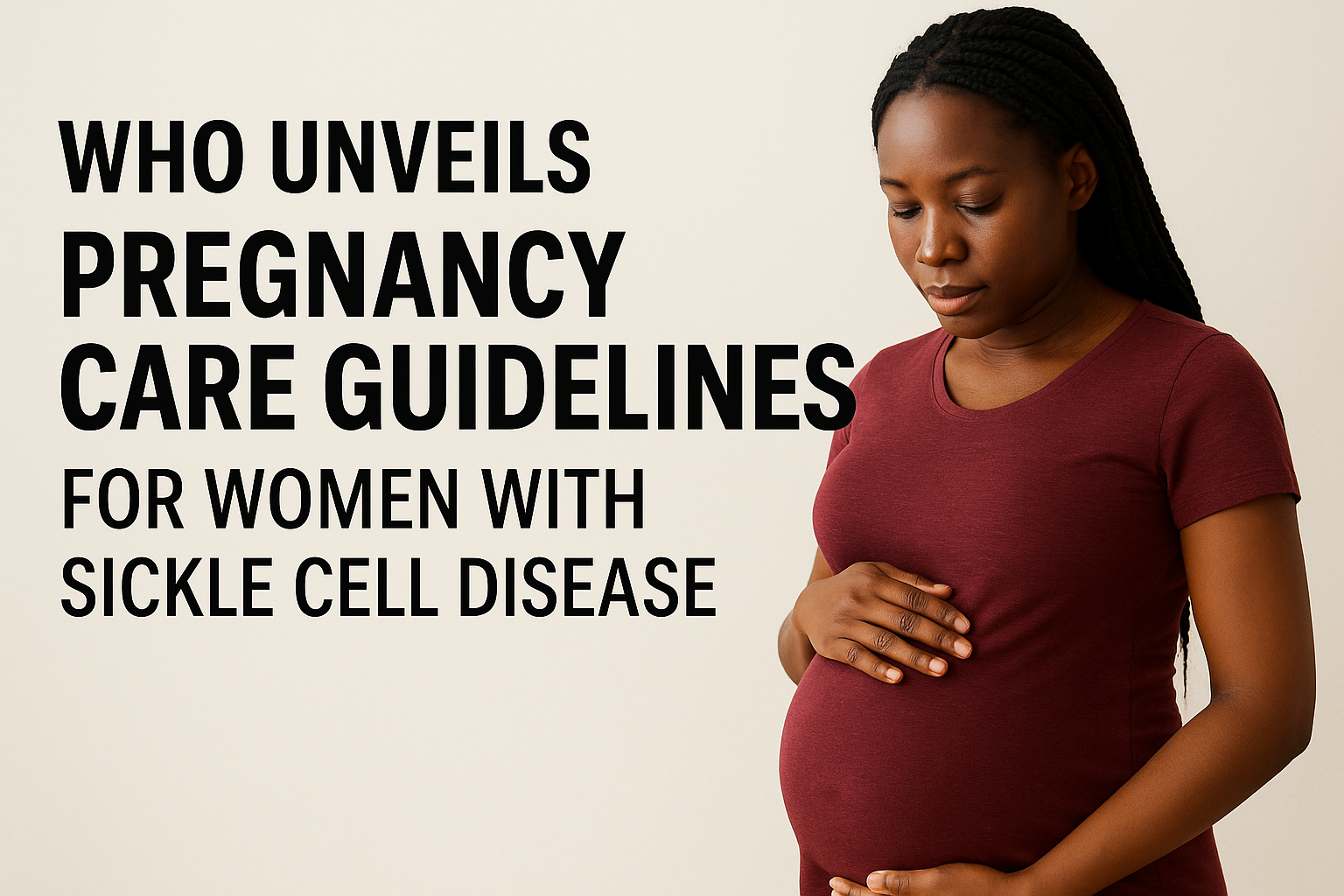
The World Health Organization (WHO) has published its first global guideline on managing sickle cell disease (SCD) during pregnancy—marking a critical step in addressing the serious health risks this condition poses for both mothers and babies. SCD, a group of inherited blood disorders, causes red blood cells to become abnormally shaped, leading to complications such as severe anemia, pain crises, infections, and life-threatening events like strokes and organ failure.
Pregnancy significantly increases the risk for women with SCD, who face up to 11 times higher chances of maternal death and are more prone to complications like pre-eclampsia. Their babies are also at increased risk of stillbirth, preterm birth, and low birth weight.
“There is a clear need to provide better, safer care for pregnant women with SCD,” said Dr Pascale Allotey of WHO. The new guideline addresses the global rise in SCD—now affecting approximately 7.7 million people worldwide, with most cases in sub-Saharan Africa, parts of the Middle East, South Asia, and the Caribbean.
Previously, most SCD pregnancy protocols were based on high-income country data. WHO’s guideline fills this gap by offering over 20 evidence-based recommendations suited for low- and middle-income countries, where the burden is highest. These include guidelines on folic acid and iron supplementation, pain management, infection prevention, prophylactic blood transfusions, and monitoring for both mother and baby.
Emphasizing individualized, respectful care, the guideline also calls for early consultation and decision-making, ideally even before pregnancy, with multidisciplinary teams that may include hematologists, obstetricians, midwives, and pediatricians.
Importantly, the document highlights the need to combat stigma in healthcare settings and urges investment in research, especially for pregnant and breastfeeding women—groups often excluded from clinical trials.
This guideline is the first in a WHO series addressing chronic diseases in pregnancy, with upcoming publications focusing on diabetes, cardiovascular conditions, mental health, and more—recognizing the growing role of noncommunicable diseases in maternal and newborn health outcomes.

